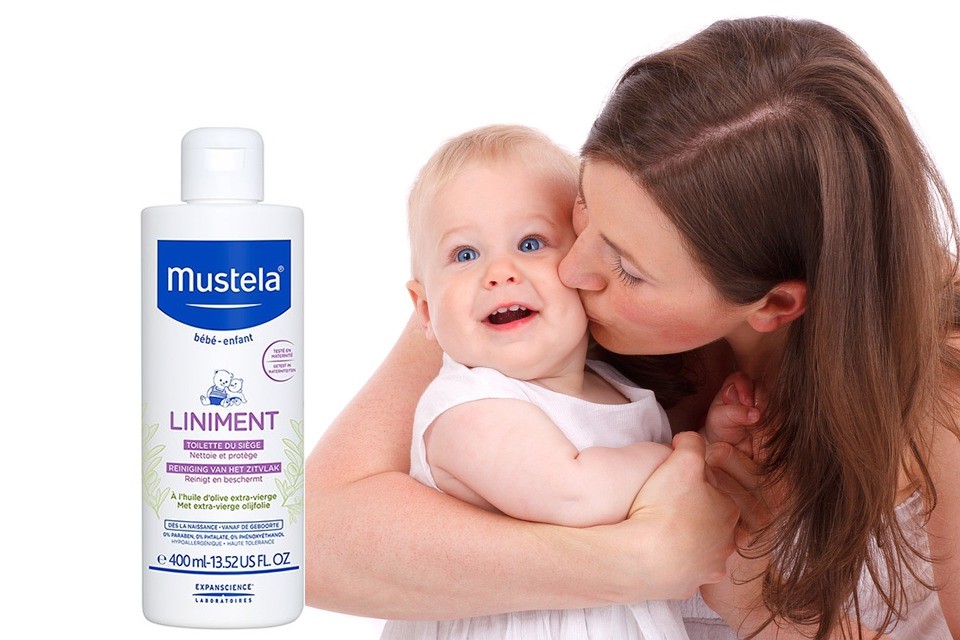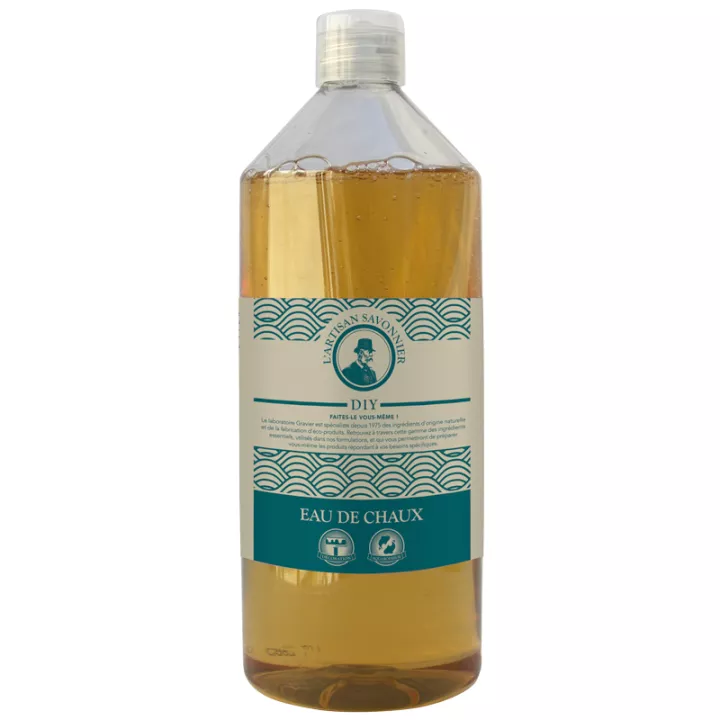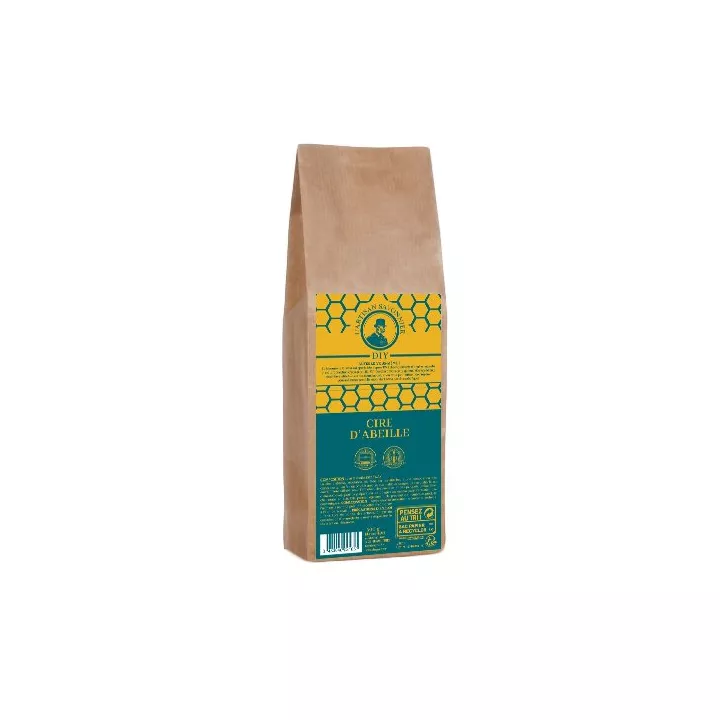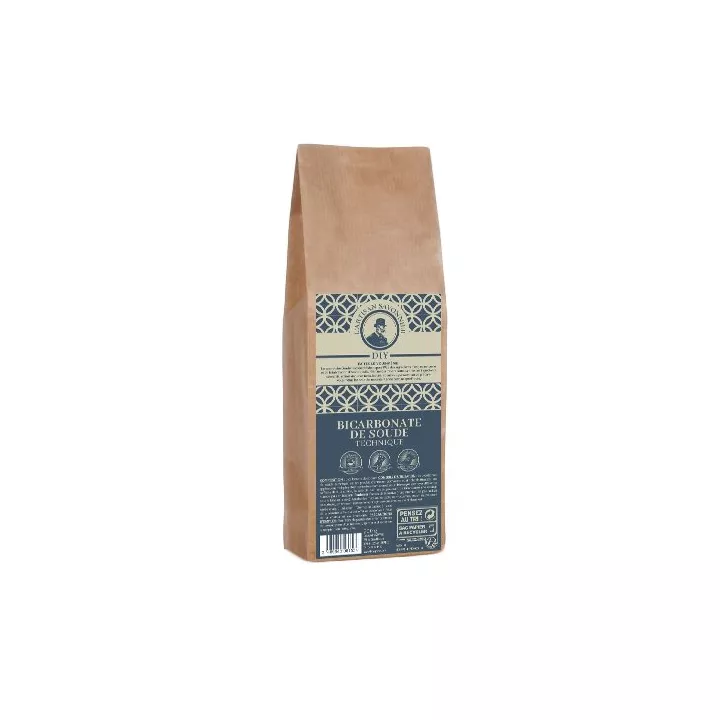What is the purpose of Artisan Savonnier DIY Eau de Chaux?
Limewater is a saturated solution ofcalcium hydroxide. It is produced by mixing air lime with water. The lime dissolves slowly in the water to form a limewater filtrate.
Limewater is a unique and versatile solution that offers a range of benefits in a variety of areas, including as a key ingredient in the manufacture of artisanal soaps. To fully understand its uses and benefits, it's essential to understand its composition and manufacturing process. Limewater is essentially a saturated solution of calcium hydroxide, formed by the slow dissolution of air lime in water. This process produces a filtrate with unique properties beneficial to the skin and overall health.
In the manufacture of handcrafted soaps, limewater plays a crucial role as a saponifying agent. When combined with oils or fats, it triggers a chemical reaction called saponification, transforming lipids into soap. This reaction creates a solid base for the formation of high-quality soaps, offering a smooth, creamy texture and excellent cleaning properties. What's more, limewater helps stabilize the pH of soaps, making them mild and suitable for everyday use, while preserving the natural benefits of added oils and ingredients.
The benefits of limewater are not limited to soapmaking. As a natural product, it is often used in skin care products for its soothing and disinfecting properties. Applied to the skin, it can help reduce inflammation, soothe irritation and treat skin conditions such as eczema and acne. What's more, due to its alkaline nature, it can also act as a natural deodorizing agent, neutralizing unwanted odors and leaving skin fresh and clean.
Aside from skin care, limewater is also used in other applications, notably in agriculture and cooking. In agriculture, it can be used as a soil improver to regulate pH and provide essential plant nutrients. In the kitchen, it is sometimes added to pickles and other canned foods to crisp them up and extend their shelf life. This versatility makes limewater a valuable ingredient in many aspects of daily life.
It should be noted that although limewater offers many benefits, it must be handled with care due to its alkaline nature. When preparing it, it is essential to wear appropriate protective equipment, such as gloves and goggles, to avoid direct contact with the skin or eyes. In addition, it must be stored in airtight containers to avoid contamination or unwanted reactions. By following these precautions, you can safely enjoy the many uses and benefits of limewater in a variety of applications.
We also offer Artisan Savonnier DIY Paillettes de Savon de Marseille, at the best price in our online pharmacy.
How to use limewater?
To make liniment, mix equal parts limewater and a vegetable oil of your choice, usually olive oil. To promote emulsification, you can add 1% emulsifying wax to the mixture. If you wish to reinforce the healing and soothing properties, add a few drops of Lavender Fine essential oil, which is safe for babies from the age of 3 months. This liniment can be applied to washable wipes to cleanse and soothe your baby's skin, or used as a gentle facial make-up remover. Liniment does not need to be rinsed after application.
Make-up removal: Liniment obtained from lime water can be used as a make-up remover for the face. Avoid contact with eyes, especially if essential oils have been added.
Skin irritations : Liniment prepared with limewater has soothing properties. It can be applied to irritated, burned or eczema-prone skin to relieve discomfort.
Aquarium care: Pure limewater is used to provide calcium and maintain alkalinity in an aquarium, thus promoting the optimal development of certain animal species.
Give your opinion on the advice for use and dosage of Artisan Savonnier DIY Eau de Chaux with our partner Verified opinions after your purchase.
Precautions for use
- Limewater can sometimes form a small deposit of white calcium carbonate crystals at the bottom of the bottle (this is a normal and harmless phenomenon).
- Never use pure limewater on the skin.
- Its pH is very basic and could cause burns.
What's the composition?
Aqua, calcium hydroxide / Water, calcium hydroxide (Ca(OH)2)
Packaging
Available in 500 ml or 1 liter bottles .









